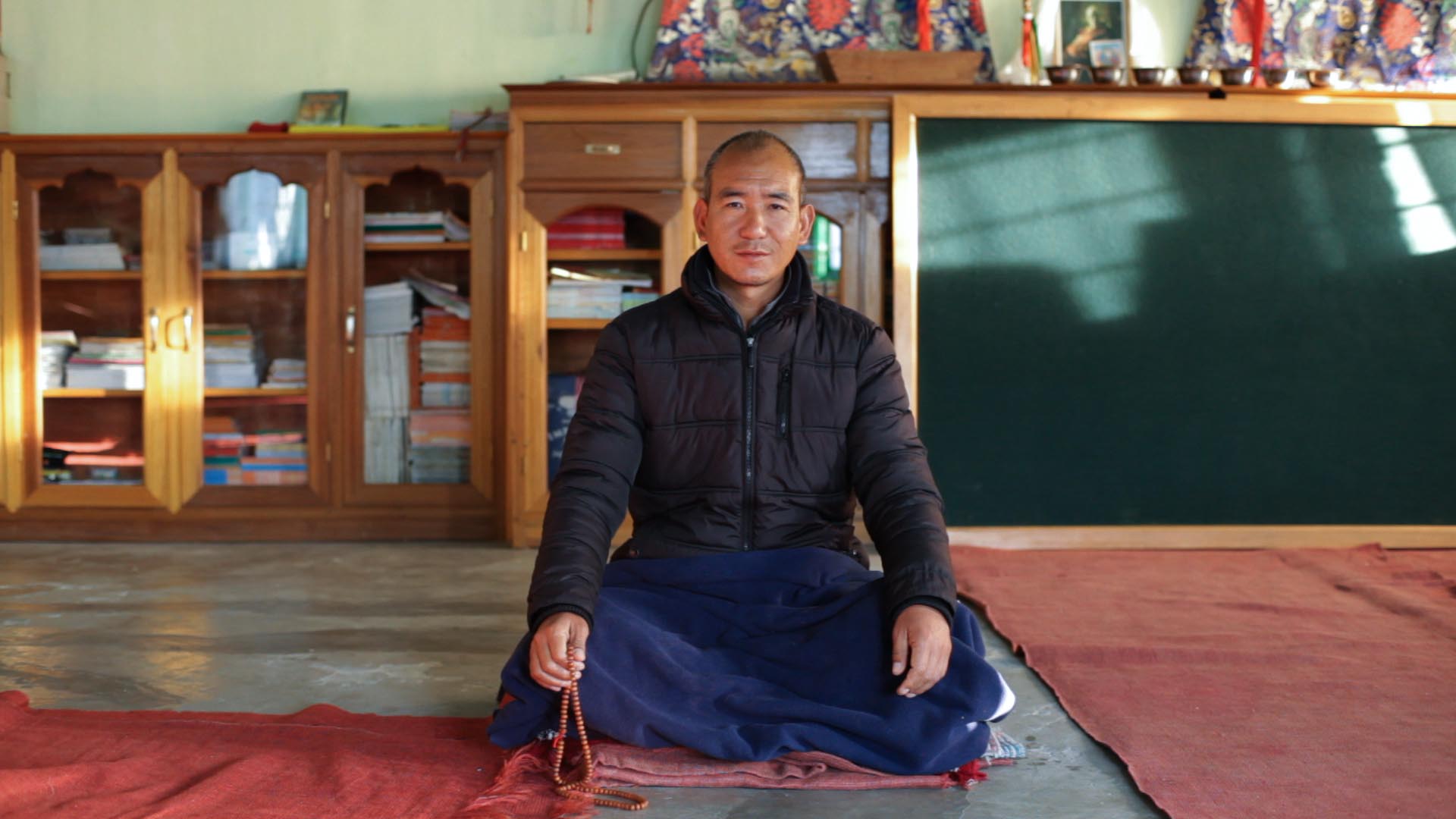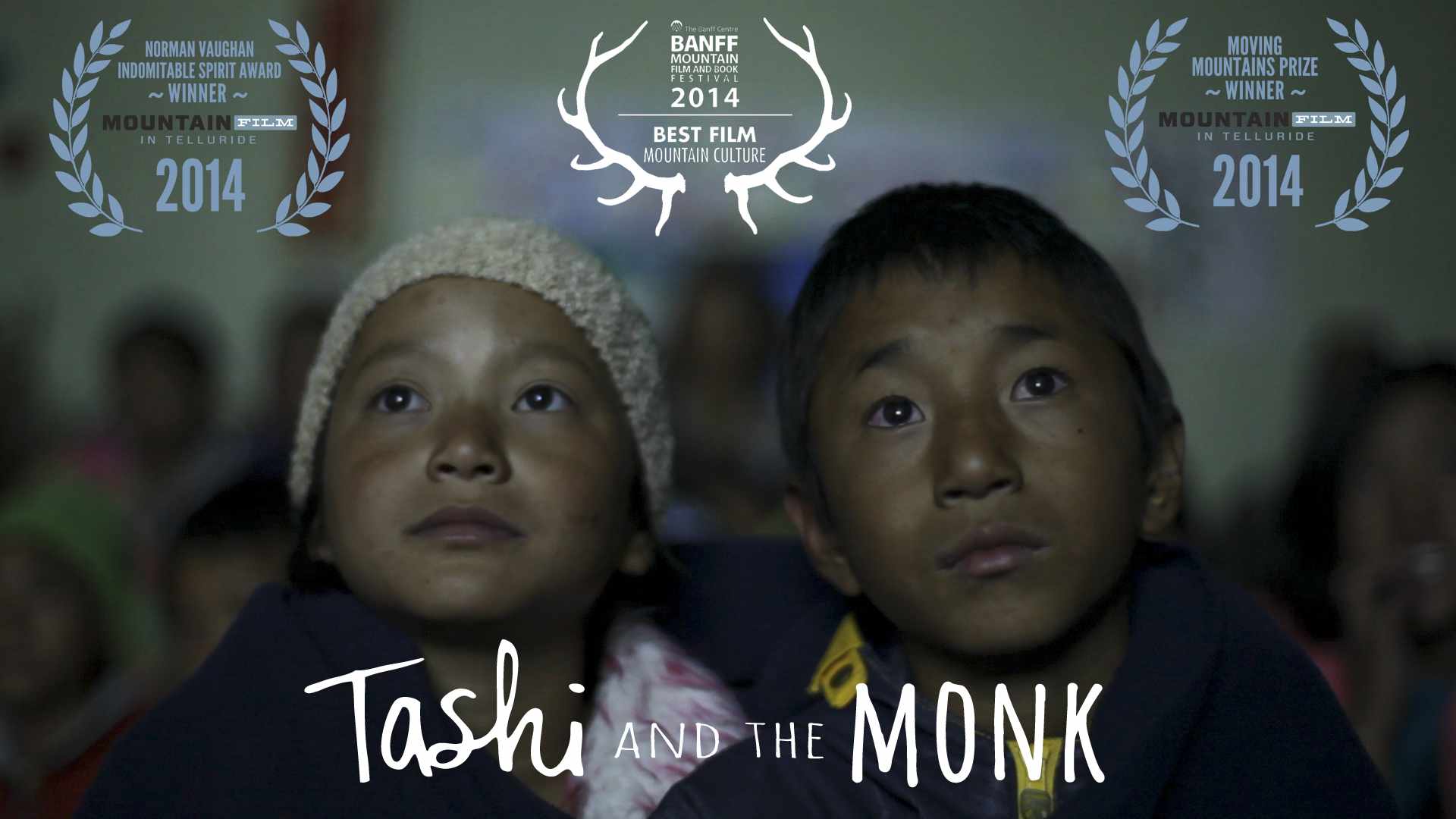Our film is something of an anomaly. It was made completely outside the commissioning process. It’s a strange length. It premiered at a film festival in the mountains of Telluride, and it’s about the healing power of love and compassion. And yet it has screened on HBO in the US, won two International Documentary Association Awards and here we are on the Grierson shortlist. How on earth did that happen?
The first two or three weeks after arriving at the remote children’s community in India where we made Tashi and the Monk the camera stayed in the bag. Instead of filming we just hung out and got to know the kids. We listened. We watched. We looked for a story.
We also talked a lot. Friend and colleague Johnny Burke had signed up for this adventure on a promise of surfing (waves not couches) in South India while we edited. Before and during the shoot we spent many hours on a bench looking across the valley to Bhutan discussing how to take our filmmaking back to its essential core, reconnecting with what and who we admired most in documentary. We didn’t quite realise it at the time but these conversations were rekindling a love for filmmaking we’d both felt slipping away after years in the industry.
Between the two of us we basically did all production roles ourselves - shooting, directing, producing, sound recording, editing. But a film is a lot more than the sum of those parts, so early on we decided the credits would simply feature the signatures of everyone at the community.
We shot on a 5D, and edited on a couple of laptops. It was a pretty lo-fi setup that meant we could be very light on our feet, and capture both the epic beauty of the Himalayan landscape and the intimacy of a grieving grandmother’s loss or a group of children at play.
We battled power cuts to painstakingly translate the rushes on site. We took bucket showers. We slept under six layers of blankets each night. We printed out this quote from James Victoire and taped it above our makeshift edit station:
“Your work is a gift. This is a radical idea because it changes how you think about your work. It changes why you work, what you make and even who you work for. When your work is a gift your goal is no longer to satisfy a boss or a client, or even to gain a paycheck. You now work to make yourself happy and in turn speak directly to your audience because you give them something of value - a piece of yourself”.

The incredible atmosphere at the community was unlike anything we had ever experienced. The trust and care and love that Lobsang (community founder, father figure and the monk of our title) has poured into this living laboratory of compassion is remarkable, as are the results. Kids whose histories spoke of unimaginable tragedy and trauma were healing the wounds of the past through the safety and support of a loving extended family without medication or experts in sight. It was inspiring to witness, and we did our best to imbue our approach with similar levels of care.
After three months, when we thought we had the makings of a film, we headed South and rented an apartment a short walk from the beach in Kerala. We christened it the Edit Ashram and assembled the rough cut there. We swam in the sea every day, did yoga on the roof, ate amazing home cooked Indian food prepared by one of our neighbours, and reached the end of the edit six or seven weeks later, feeling more nourished and enthused than when we began.
Some great folks jumped on board back in London to help finish it (shout out to Dan Weinberg, Message to Bears, Chris Hall and Paul Jones) and since the premiere in Telluride a couple of months later the film has been on an amazing journey (you can read more about that on our website).

Looking back it’s safe to say we’re incredibly proud of how the film turned out, and the positive impact it has had. We set out to tell a story we really believed in that would otherwise go unheard. We tried to do it in a way that respected and included everyone involved. And in the process we rediscovered something we thought we had lost - a passion for making films.
Watch or find out more at: www.tashiandthemonk.com
